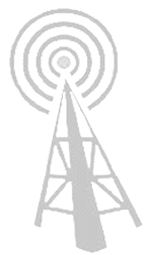NBN Co has finalised its second bid for the radio spectrum required to build out its fixed wireless network, with deployment set to begin within a year.

The network wholesaler this week purchased 24 licenses in the 2.3 GHz spectrum band from the media regulator.
It paid a total of $1.3 million in an open auction, bidding against Telstra and Unwired subsidiary BKAL.
The new licenses acquired by NBN Co covered regional areas in Western Australia, Northern Territory, South Australia, Queensland and far west NSW.
The wholesaler said in a statement that the new licenses gave it "all the geographic coverage it needed from this auction for its wireless network" and would cover the "majority of the communities originally targeted".
"We will continue to assess our on-going spectrum requirements over time if opportunities arise," they told iTnews.
An initial register of applicants for the auction showed NBN Co had signed up to bid for a total 33 licenses today.
Detailed auction results revealed NBN Co had failed to secure nine lots of spectrum, only achieving two of the three available 28 MHz or 35 MHz spectral bands in Darwin, Geraldton, Kalgoorlie, Roxby Downs, Cameron Corner and north and central Queensland.
In the Gascoyne and Pilbara region, the wholesaler secured 28 MHz or one band of the 100 MHz available spectrum.
NBN Co paid between $1,000 and $220,000 per license at the auction, with the most expensive spectrum in northern Queensland. It paid an average of $55,400 per license.
In contrast, Telstra paid an average $25,300 for each of the 12 licenses it purchased at the auction, while BKAL paid $9,325 for its four licenses in the auction.
Another eight lots, which were uncontended and not part of the auction, would be offered to BKAL for the undisclosed reserve sum.
The licenses picked up by NBN Co today would complement the existing 2.3 GHz spectrum acquired from pay television operator Austar as part of a $120 million deal signed in February.
The February deal also included Austar's licenses for 3.4 GHz spectrum, which NBN Co expected to use for the local backhaul aspects of its long-term satellite service.
The initial deal attracted scrutiny over the amount NBN Co paid for the spectrum, with one analysis by iTnews' David Havyatt revealing a possible blowout of up to six times the expected rate.
An NBN Co spokesperson said the auction process used during the second round of allocations was more consistent with market processes.
"Clearly we did some work on what was value-for-money in terms of what we were willing to pay," they told iTnews. "The value is based on the number of people we anticipate serving in a given area and the cost of providing them a service via an alternate method – such as fibre or satellite.
"The fact that other commercial companies were bidding indicates that we paid market value for our lots given their location and population coverage."
NBN Co chief technology officer Gary McClaren told a Queensland technology conference this morning that the builder would have to deploy 2400 wireless base stations to cover the area required, with approximately three quarters of these being brand new installations.
Ericsson secured the $1.1 billion, ten-year contract to roll out the network in early June, which will serve four percent of the Australian population not covered by fibre or satellite services.
NBN Co chief executive Mike Quigley would not confirm at a recent Senate inquiry hearing whether the global mobile vendor was the only company to bid for the tender.


_(28).jpg&h=140&w=231&c=1&s=0)
_(22).jpg&h=140&w=231&c=1&s=0)
_(23).jpg&h=140&w=231&c=1&s=0)





_(26).jpg&w=100&c=1&s=0)
 iTnews Executive Retreat - Security Leaders Edition
iTnews Executive Retreat - Security Leaders Edition












_(1).jpg&h=140&w=231&c=1&s=0)



